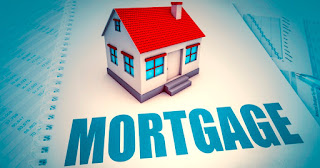New to Canada Mortgage | Qualifications, Programs & More
If you are new to Canada and need a mortgage to fund a home purchase, there are some steps you need to take and supporting documents you will need to provide. The type of mortgage you will apply for and the paperwork you will need to have depended on whether or not you are a permanent resident, what your credit rating is, and how much you have saved for a down payment.
What is a mortgage?
A mortgage is the money you're going to borrow from a lender – such as a bank – to help fund the expense of the home you're purchasing. Over time, you make daily mortgage payments to the lender with the intention of owning the home entirely at the end of the mortgage term.
New to Canada Mortgage
Your mortgage payment consists of principal and interest. The principal is the difference between the purchase price of the house and the down payment, and the interest is the lender's fee for you to borrow the money from them.
Your down payment is part of the purchasing price of your home that you pay in advance at the time of purchase. The more money you put down, the less you need to borrow, and the lower your net interest rates.
Your job background and immigration status will decide how much down payment you would need to purchase your first home in Canada.
Requirements.
You will also need some documentation to help you get a mortgage in Canada:
- A new payment proof.
- Your employer's letter confirming your employment
- 12 months of demonstrable bank statements made by a recognised financial institution in your country of origin
- 12 months of verifiable recurring payments to prove that you can pay your bills in full and on time (this can be phone or electricity bills) – this is not necessarily necessary but it's best to schedule your bills.
Credit report and score.
In addition to the above-mentioned documents, you would need to have good credit to apply for a mortgage in Canada. Unfortunately, if you're new to the world, you can not be able to prove that. The easiest way to improve your credit score is to apply for a Canadian credit card. If you get a card, make all the payments on time to prove that you are responsible and that you can cope with the debt.
If you have a credit report from a commonwealth country such as Australia, the United Kingdom and the United States, you can use it instead. However, it is always better to create credit in the country where you live, just in case you need to take out loans or lines of credit.
It is very important to have a good cash flow and the amount of money available. If a lender becomes sceptical and thinks you do not have enough funds to repay the loan then they will likely reject your application. Furthermore, you should also stick to your current employment while applying for a loan.
This means ensuring you do good in your current position so that there is no risk of getting fired. If a lender presumes you are likely to lose your job, they will not be interested in having a mortgage.
Final requirements.
Lenders tend to analyse your debt to income ratio before accepting your application for a loan. This helps them see whether or not you can make the monthly payments required. If a lender notices you have other loans, debts, or several due bills they will be unlikely to approve your mortgage. It’s very simple if you can’t pay for your other loans and debts, who’s to say you can pay for this new mortgage?
While the amount you can borrow is mostly limited to eighty-five per cent of your home equity’s appraised value, the actual amount of your loan can also be negotiated and changed based on various factors. Lenders also tend to ask for a twenty per cent downpayment. Before settling on a lender you should compare terms and talk with banks, credit unions, mortgage brokers, and mortgage companies.



Comments
Post a Comment